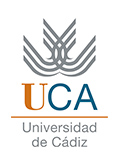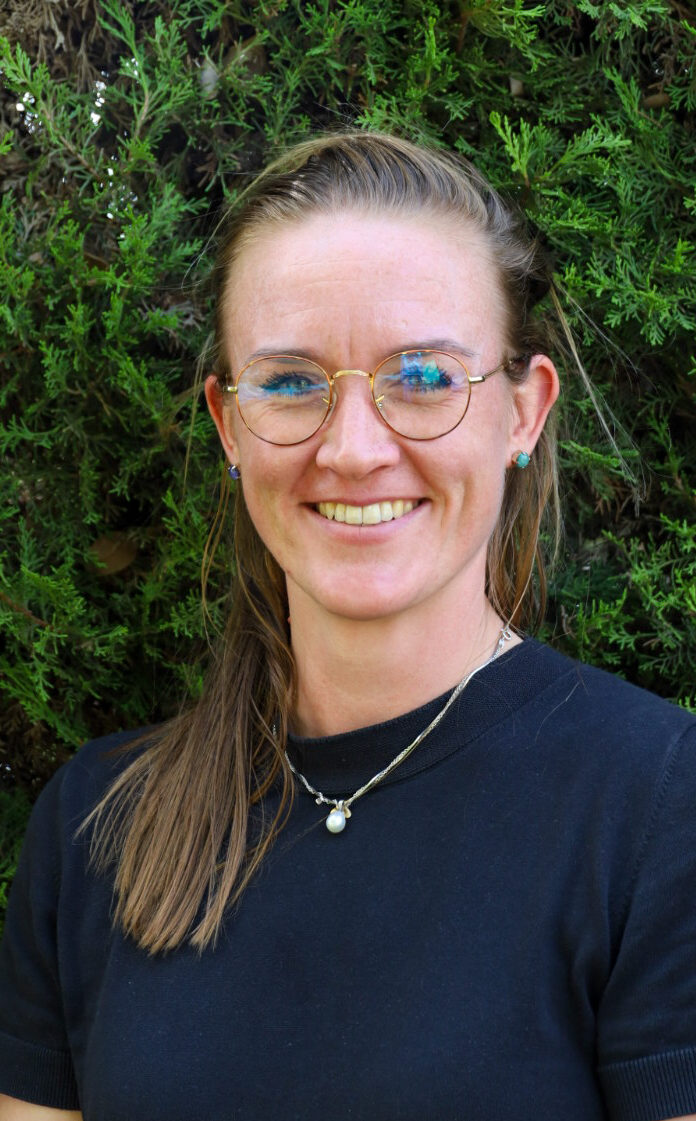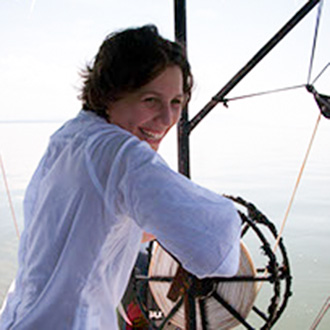Below are some of the previous members of the group. With many of them, we still collaborate closely from their new posts
Post doctoral researchers
Dr. Lot van der Graaf
Research Interests:
In our lab I study microbe-metal interactions in acid mine drainage (AMD) environments. We study the mechanisms involved in microbe-mediated metal nanoparticle formation, and its application for metal recovery and recycling. After doing my PhD (2017-2022) at the Laboratory of Microbiology of Wageningen University (The Netherlands) on bioremediation of metal-containing wastestreams such as AMD, it is great to now work just a few hours’ drive away from the Rio Tinto basin, one of the world’s most famous acid drainage impacted areas.
Lot is now working as assistant professor with TU Delft.
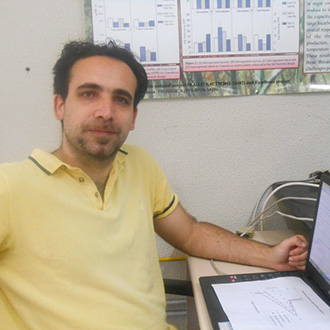
Dr. Miguel Lara
Post doctoral researcher
PhD in Biology (2013), University of Cádiz
Advanced Studies Diploma in Biotechnology (2007), University of Málaga
BSc in Environmental Sciences (2005), University of Málaga
During my researcher career, I have focused on the ecology of benthic systems dominated by the physical forcing of tides (intertidal phytobenthos, salt marsh and estuaries). My doctoral period dealt about the interaction of shallow seagrass habitats with hydrodynamics, i.e both how their spatial structure determines turbulence and current velocity structure, and how these patterns explain nitrogen dynamics and coastal protection services. Modelling efforts are central to address bio-physics underlying, and have been developed for the problem of short term sediment trapping or the oscillating selection pressure.
I am currently studying the oxygen patterns resulting from the inmersion-emersion and emersion-inmersion transitions that dominate intertidal microphytobenthos. For this purpose, diffusion-reaction models are key skills to understand how fast changes from water-sediment to air-sediment interfaces play a role on the overall sediment biogeochemistry.
Miguel is working now as an Interim Professor at the University of Cádiz, at the Faculty of Education.
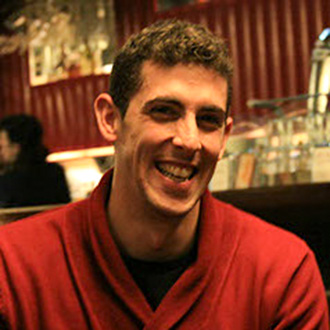
Dr. Julio Bohorquez
Post doctoral researcher
PhD in Marine Sciences, 2017, University of Cadiz, Spain
M.Sc. in Oceanography, 2009, University of Cadiz, Spain
B.S. in Environmental Sciences, 2009, University of Cadiz, Spain
Shallow-water marine sediments are one of most productive marine areas due to the abundance of benthic microalgae, also known as microphytobenthos (MPB). MPB inhabiting intertidal areas contributes significantly to system productivity and controls to a great extent the biogeochemical cycles of nitrogen and carbon in such systems.
My research activity is focused on primary production of MPB and its influence on the nutrient dynamic at the water-sediment interface. I use a combination of methods including measurements using selective microsensors (e.g. O2, H2S and pH) and more traditional biogeochemical techniques. I perform measurements both in laboratory microcosms and in situ experiments to achieve my goals.
At present, I am working: 1) to understand the effects of tidal cycles (at the microscale) on changes in the O2 and inorganic nutrients across the sediment-water interface; 2) to measure the benthic metabolism and understand the biogeochemistry of acid mine drainage affected reservoirs.
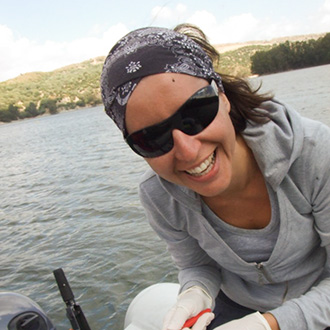
Dr. Bárbara Úbeda
Post doctoral researcher
PhD in Marine Sciences. (2014). University of Cadiz
My research interests focus on the fields of aquatic ecology. I am particularly interested in the study of phytoplankton ecology and physiology, and their role in elemental cycles (C, N and P) to understanding ecosystem functioning, and how they respond to different stressors (climate change, eutrophication or mining acid water). I am also interested in the culture of microalgae, including the production of value-added products or sustainable source of energy.
I have a background within the field of limnology. My Ph.D. thesis was focused on Esteros del Iberá wetland (Argentina). In this dissertation I assessed the effects of climate change on ecosystem functioning and biodiversity through a combination of empirical research, historical data compilation and modelling. I was also involved in different project in wetland and reservoirs, and since 2012 I am manager of maintenance the Bank of Algae in the Biology Department.
Currently, I am working on a project on microbial biogeochemical effects in an acid mine drainage impacted reservoir. My research focuses on the study of phytoplankton community from two perspectives. The first are laboratory experiments on the growth requirement and the potential biotechnological applications of extremophilic microalgae isolated from an acid reservoir. And the other hand, field survey are being developed to understanding the processes and interactions that structure phytoplankton communities in this acid reservoir.
Keywords: ecology, phytoplankton, biodiversity, biogeochemical cycles, climate change, models, microalgae cultures, value-added products, micro-plastic, shallow lakes, wetland, reservoirs.
Barbara is now working as a technician at the INMAR institute offering cytometry and flowcam services.
Ph.D students
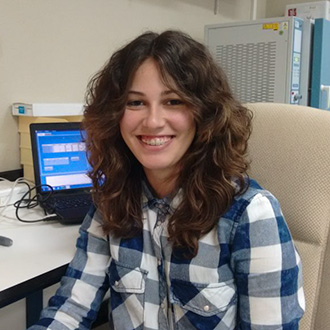
Sara Haro
PhD in Marine Sciences, 2019, University of Cadiz, Spain
M.Sc. in Integrated Water Management, 2013, Universidad de Cádiz
BSc in Environmental Sciences, 2012, Universidad Pablo de Olavide, Spain
Nature lover, studied environmental sciences by vocation. My interest in research began in 2012, with my bachelor degree project “Analysis of the water quality of the Río Blanco” project. I then did a practical master in water management, where I had the opportunity to collaborate within the research line “Photo-biodepuration of sewage effluents” and work on the project “Kinetics of nutrients and growth of a algal bloom in a High Rate Algae Pond photobioreactor”. I have recently joined the Laboratory for Microbial Ecology and Biogeochemistry, where I will do my thesis within the project MICROBAHIA. In this project, we will study the effect of tidal cycles (immersion-emersion) and its interaction with daily cycles (light-dark) on microbenthos ecology and sediment-water exchanges. Experiments will be developed both in microcosm and in-situ (MiniProfiler MP4).
Sara is currently working as a Postdoctoral Researcher at the University of Málaga .
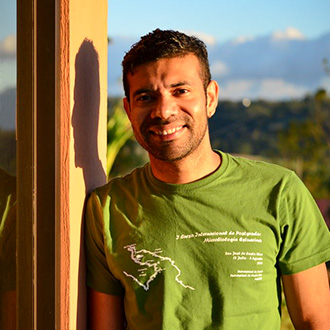
Eddy Humberto Gomez Ramirez
Investigador, Centro de Investigaciones en Ciencias del Mar y Limnología (CIMAR), Universidad de Costa Rica.
Docente, Escuela de Química, Universidad de Costa Rica.
PhD in Marine Sciences, 2017, University of Cadiz, Spain
M.Sc. in Oceanography, 2012, University of Cadiz, Spain
BSc in Chemistry, University of Costa Rica, Costa Rica
Research interests:
Nutrients dynamics in coastal tropical ecosystems, and in particular the role of the mangroves to nutrient cycling, and production and remineralisation of organic matter.
Eddy did his PhD continuing on the work of his master thesis (Net metabolism and nutrient flux at the sediment water interface in the Golfo de Nicoya, Costa Rica).
You can find Eddy ResearchGate page here
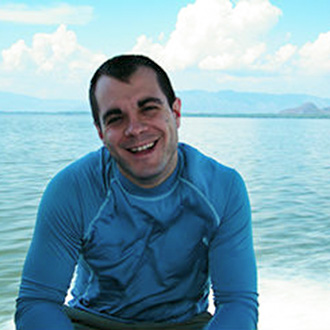
Juan Luis Jiménez Arias
PhD in Marine Sciences, 2017, University of Cadiz, Spain
M.Sc. in Oceanography, 2009, University of Cadiz, Spain
B.S. in Environmental Sciences, 2007, University of Cadiz, Spain
My research focuses on biogeochemistry and microbial ecology. I am really interested in the biogeochemistry of Fe, especially those biotic and abiotic processes that take place in marine sediments and involve reactions with iron-bearing minerals. I use a multidisciplinary approach combining several geochemical methods, fieldwork, experiments in the laboratory, as well as environmental reconstructions from sedimentary records. At present, I am studying to extend my understanding of Fe cycle in other environments in which this element may have a crucial importance, for example acid lakes.
For my PhD thesis, I plan to 1) determine the role of highly reactive iron (FeHR) in coastal sediment of the Bahia de Cádiz and the Gulf of Nicoya to total sediment metabolism; 2) find novel proxies in the sedimentary record that can be used in paleoecological studies; and 3) study the importance of iron reactivity with respect to C mineralization within tropical environments and lakes affected by acid mine drainage.
The interests outside my research include: running, football and enjoying a good meal.
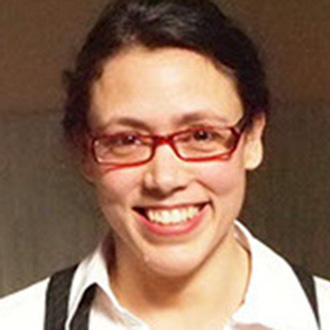
Desirée Villahermosa Caballero
Ph.D. in Chemical Science and Technology, 2009, University of Cadiz, Spain
M.Sc. in Chemical Science and Technology, 2009, University of Cadiz, Spain
B.Sc. in Biochemistry, 2005, University of Barcelona, Spain
Desiree’s project was related to the biotechnology of the microbial consortia formed by sulfate reducing and nitrate reducing sulfide oxidizing bacteria in wastewater treatment plants.
Desiree is currently working as a Research Development Officer at the University of Sussex, UK
M.Sc. students
Vicky Aguilar
M.Sc. in Oceanography, 2012, University of Cadiz, Spain
Vicky participated at the international course on estuarine ecology and then worked with us during her master thesis entitled “Characterisation of the microbial community in the Golfo de Nicoya, Costa Rica”.
M. Isabel Seguro
M.Sc. in Oceanography, 2011, University of Cadiz, Spain
Research Interests: My primary research interest is the ecology of phytoplankton and its relationship with climate change. In 2009, I obtained a B.Sc. degree in Environmental Science from the University of Extremadura. In 2011, I obtained a M.Sc. in Oceanography from the University of Cadiz. I joined the MEB Laboratory group while working on my thesis on “The pelagic system of the Gulf of Nicoya and Tempisque River, Costa Rica”. I have been recently funded by NERC to conduct a Ph.D. on “Shelf-sea gross and net production estimates from triple oxygen isotopes and oxygen-argon ratios in the relation to phytoplankton physiology” at the University of East Anglia.
Email: i.seguro-requejo@uea.ac.uk
Isabel after our lab did her PhD thesis at the University of East Anglia.
Elizabeth Arévalo Carrillo
M.Sc. in Oceanography, 2010, University of Cadiz, Spain
Eli´s master thesis was related to the effect of human pressure on the macrobenthic community structure in the beach of the Metropolitan National Park Los Toruños, Cádiz.
Eli is currently doing her PhD at the University of Athens under the supervision of Prof A. Nicolaidou and our group, working as an Marie Curie Early Stage Researcher in the Training Network for Monitoring Mediterranean Marine Protected Areas. You can have a look at her profile here.
Danielle Grace Calenti
M.Sc. in Oceanography, 2011, University of Cadiz, Spain
Incorporation of nutrients in microphytobenthic communities: Relations with primary production.
Astrid Alba Aguera Jaquemet
M.Sc. in Oceanography, 2011, University of Cadiz, Spain
Effect of the microbenthic activity in the flux of nutrients in the estuary of the Tempisque River and the Gulf of Nicoya in the rainy season (Costa Rica).
And some of our shooting stars…
MSc students from other universities that did their project with us
Christina Maria Diamanti (2010) The effects of temperature on survival of a bloom forming green macroalga (Ulva sp.) with emphasis on net production and dark respiration rates: a mesocosm experiment. Masters degree in Marine Biology, University of Bangor. Co supervised with Dr Andrew J Davies
Maria Patsalidou (2010) Effects of macroalgae bloom (Ulva sp.) on macrofauna assemblages associated with seagrass meadows in a mesocosm experiment. Masters degree in Marine Biology, University of Bangor. Co supervised with Dr Luis Gimenez
Manuela Gonzalez Linan (2009) Spatial distribution of the macrofauna in the intertidal sandy spit of Valdelagrana, (Bay Of Cadiz). Masters degree in Marine Environmental Protection, University of Bangor. Co-supervision of Dr Stuart Jenkins.
After finishing her thesis, Manuela founded her own environmental consultancy company, OYMAC.
Helene Leclerc (2012) Comparison of different protocols for extraction of pore water, freeze lysable and adsorbed inorganic nutrient fractions from marine sediments. Master “Geosciences marines et milieux aquatiques”, Université de Perpignan – Via Domitia, Faculté des Sciences Exactes et Expérimentales
